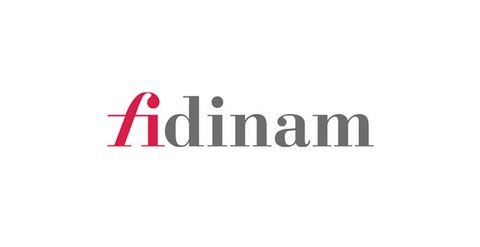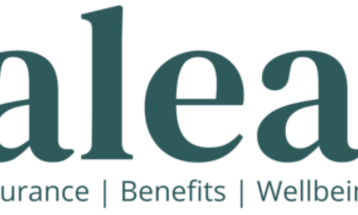Companies news
Leaving Hong Kong & Returning to France: tax and administrative hurdles to anticipate

Planning to leave Hong Kong to return to France? Saying goodbye is never easy. Having in mind the challenges to come will help you smoothen the transition. Among those, here are some some tax and administrative hurdles Fidinam could help you dealing with.
- Before Leaving Hong Kong
- 1. Taxes
Before you leave Hong Kong, clear your tax position and obtain a ‘Letter or Release’ from the Inland Revenue Department (‘IRD’). To that end, you shall file an Individual Tax Return (‘ITR’) reporting the last items of income received in Hong Kong, so that you can settle the final amount of salaries tax due (if any). Upon this final settlement, the IRD shall issue a Letter of Release confirming you have no pending or overdue tax payment in Hong Kong. Simultaneously, your employer shall notify the intended date of your departure to the IRD (no later than one (1) month before the expected departure date), and shall withhold the payment of your last salary until issuance of the Letter of Release. This enables the tax authorities to secure any potential shortfall of salaries tax due before your departure.
- 2. Social Contributions
You are entitled to ask for an early withdrawal of MPF contributions because of your permanent departure from Hong Kong. Such withdrawal can only be done once. Hence, if coming back to Hong Kong, the opening of a new MPF account will be necessary, from which no early withdrawal will be possible. The procedure is pretty simple. You shall submit an oath declaration to the Home Affairs Department Office, and file an application form with your MPF Trustee, supplemented by supporting documents (including proofs of entitlement to reside in a place other than Hong Kong, as well as the Letter of Release issued by the IRD upon final payment of Hong Kong taxes). The whole process takes around 30 days, upon which the MPF Trustee shall normally issue a cheque to be deposited in Hong Kong. Alternative methods of payment are possible if/when you already left Hong Kong, or if you have no more bank account in Hong Kong.
- 3. Immigration
While arranging a departure from Hong Kong, no reporting to the Immigration Department is required, neither from the employer nor from their employees. This being said, you should keep in mind that an Employment Visa (and any related Dependent Visa) generally grants two distinct set of rights to vias holders: (i) the right to work for one employer exclusively (which ends upon termination of your employment agreement), and (ii) the right to reside in Hong Kong (which remains valid until the original expiry date of your Employment Visa).
- 4. Others
There are a few other things which can be sorted-out before leaving Hong Kong. For instance, if you received stock options, you can consider applying for a preferential tax treatment of future capital gains, in Hong Kong, before your departure (if conditions are met, it can prevent or reduce capital gain taxes in the country where you will become tax resident). Similarly, employees, entrepreneurs, and investors entitled to dividends, can consider seeking distributions before their departure, thus receiving non-taxable income while still residing in Hong Kong (dividends often becoming taxable upon change of tax residency). Donations to children might also be considered before leaving Hong Kong, minimising future capital gain taxes. Potential anticipations all depend on the particulars of each situation. Seek advice upfront.
2. Upon Arrival in France
2. 1. Taxes
Individual Income Tax: Your tax situation will vary depending on whether or not you were already paying local taxes (such as taxes on rental income derived from a French property). If you were already paying taxes in France, you already have a French Identification Tax Number (‘TIN’) and should have set-up an online profile on the website impots.gouv.fr. Once back in France, you will need to update your profile, and declare your worldwide income (vs. only French income in the past) from the date you became tax resident in France, within your next Individual Income Tax Return (‘ITR’). If you were not paying taxes in France (or never had been), you will need to set-up a new tax profile and obtain a French TIN. This will then enable you to declare your worldwide income, from the date you became tax resident in France, within your next ITR. Progressive rates and exemptions will apply, according to various thresholds, and depending on your family situation.
Property Wealth Tax: If you were not tax resident in France during the five calendar years prior to the year upon which you returned to France and established your tax domiciliation therein, you will be liable to French property wealth tax (‘Impot sur la Fortune Immobiliere’) only on your French assets. Hence, foreign properties (if any) would fall outside the scope of this Property Wealth Tax.
Foreign Bank Account: Together with your first ITR, don’t forget to report your foreign bank account(s) and/or foreign life insurance contract(s) (if any). While it is not illegal to keep a bank account abroad, you must declare it to the French tax authorities.
Impatriation: If you return to France with a job offer from a French employer, which was negotiated and agreed upon while you were still residing in Hong Kong, you may enjoy the benefit of the so-called ‘Impatriation Regime’. According to this regime, if you were not tax resident in France during the five calendar years prior to the year upon which you returned to France and established your tax domiciliation therein, you will be entitled to individual income tax exemptions on: (i) your inpatriate bonus, (ii) 50 percent of foreign-sourced investments income and capital gains, and (iii) 50 percent of some intellectual and industrial property rights from foreign sources. Seek advice beforehand, in order to determine whether or not you could be eligible to such preferential regime.
2. 2. Social Contributions
If you immediately resume a job for a French employer, you will be automatically enrolled back into the French social security system. If you don’t immediately find a job in France, you can still apply for the French universal healthcare system, which guarantees coverage of healthcare expenses as long as you have been residing in France on a stable and ongoing basis for at least 3 months. If you are retired, the benefit of the universal healthcare system shall also apply to you upon 3 months continuous residency in France.
2. 3. Immigration
Holders of a French passport won’t need any visa to work and reside in France. But how about foreign passports holders? This often happens with partners and kids, who may not have been part ofyour journey before you originally left France. There are various work visa and residency permit types available in France, depending on nationalities, and the type of work or residency contemplated. Full details on available visas can be reached on the French government website france-visas.gouv.fr/en/web/france-visas/.
2. 4. Others
Are you ready for a ‘reverse cultural choc’? After many years abroad, France won’t be the country you knew when you left. Don’t under-estimate things and forecast sufficient time for transition. For all administrative hassles, we invite you to create your own DoToList thanks to the dedicated page of service-public.fr (it encompasses topics such as conversion of international driving licenses, coming back with a pet, unemployment subsidies, renting a flat, etc.).
***
Don’t hesitate seeking for assistance. Fidinam can help you addressing the tax and administrative difficulties you will face along relocation. For all other challenges (psychological, professional, parental, etc.) Fidinam can recommend you a vast network of experts and partners.



